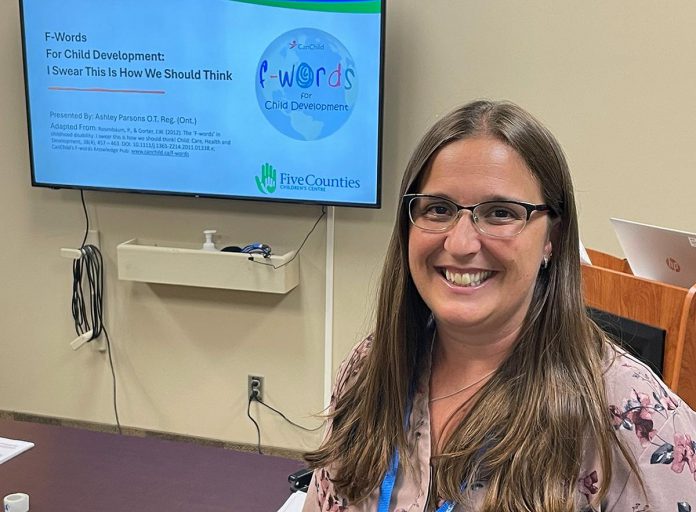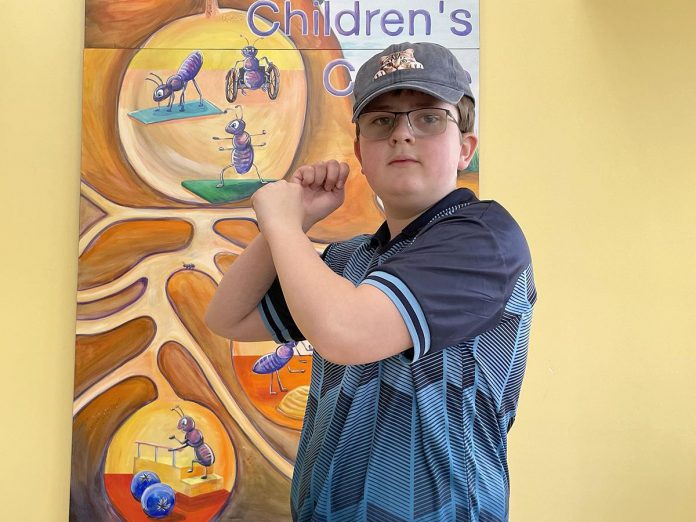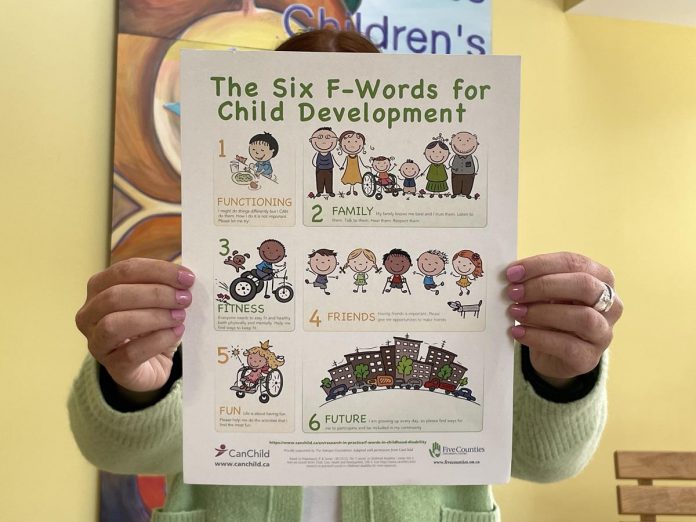
If you hear F-words being used at Five Counties Children’s Centre, it’s a good thing. They’re not F-bombs, but words of wisdom we urge families to share with their kids.
The six F-words of childhood development focus on six key areas of a child’s health and well-being. Inspired by decades of research and developed by McMaster University’s CanChild research centre, the six F-words represent a big shift in thinking.
The framework moves us from a medical model of “fixing” kids to a strength-based approach that promotes health and development using all aspects of a child’s life This change in focus encourages us to look at a child’s strengths and interests rather than a disability or impairment. .
This holistic approach to development — being used by Five Counties in its work assisting children with physical, developmental, and communication challenges — helps us address all of the child’s and family’s unique needs and goals for treatment.
To see how this works, we can spell out each of the six F-words:
- Functioning is a child’s strengths and way of doing things. (“I may do things differently, but I can do them. How I do it isn’t important; please let me try.”)
- Family represents a child’s essential ‘environment’. (“My family knows me best and I trust them. Listen to them, talk to them, hear them, and respect them.”)
- Fitness describes a child’s physical and mental well-being. (“Everyone needs to stay fit and healthy, both physically and mentally. Help me find ways to do this.”)
- Fun includes activities a child likes doing. (“Life is about fun and play. Please help me do the activities that I find the most fun.”)
- Friends refer to a child’s relationships with others their own age. (“Having friends is important. Please give me opportunities to make friends.”)
- Future is a child’s expectations and dreams for life. (“I am growing up every day, so please find ways for me to participate and be included in my community.”)

Using each F-word, we tailor questions that suit a child’s age, stage of life and developmental level to spark a conversation. This helps us work with the client and family to answer and describe what each F-word looks like for them.
The result is a picture that we can use with the family to plan programs and activities, set goals, and problem solve to help achieve the best treatment outcomes for their child.
The six F-words framework (and the many CanChild resources that come with it) can be used in everyday situations by everyone, be they a child’s family, care group, daycares, educators, and other service providers. The six F-words model is ideal for introducing a child with unique needs to others and to new settings, like school.
A parent, who worked with McMaster’s CanChild research centre, puts it this way: “The F-words help me tell the story of my son, to paint a picture of who he is, what he likes and focus on what he can do.”
The six F-words speak to the strength and abilities in children, helping us embrace their whole self, situation and surroundings. Far from being a curse, the six F-words are something by which we swear, as they are an invaluable way to promote healthy childhood development.
For more information about the six F-words for child development, visit McMaster University’s CanChild website.



























